10 Ornamental Shrubs with Environmental Benefits
From improving air quality to supporting wildlife, these shrubs offer more than just a beautiful appearance.
In this article, we explore the 10 best ornamental shrubs that bring environmental advantages to your garden which we saw and later ranked. We will also detail their growth habits, care requirements, and unique features and benefits.


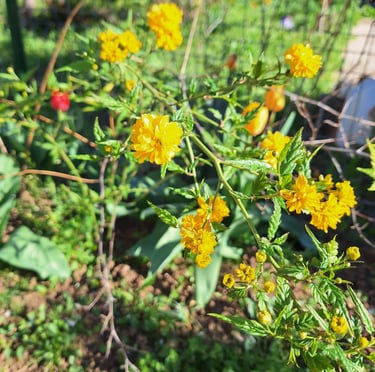



Environmental Benefits of Ornamental Shrubs
We found that these shrubs are crucial in supporting local ecosystems by providing habitats and food sources for wildlife, including pollinators and birds. Many of them contribute extensively to air purification by absorbing pollutants and producing oxygen.
Their root systems help in soil stabilization and erosion control, making them invaluable in both urban and rural landscapes.
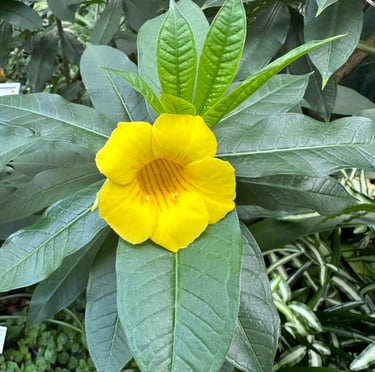

Golden Bell
This green flowering bush called Golden Bell, reaches 2-3 m (6-10 ft) and loves full sun and well-drained soil. Its cascading branches with bright yellow flowers create a stunning display in early spring, making it ideal for fences and trellises but also as a drought tolerant full sun plant.



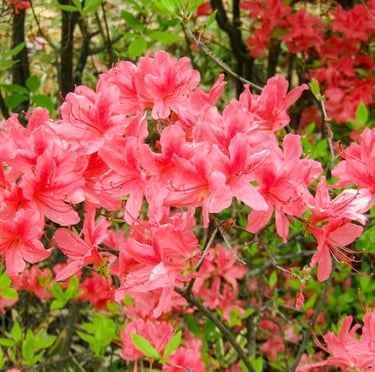

Azalea
Azaleas are great easy-care landscaping shrubs that reach 0.5-2.5 m (1.5-8 ft) and thrive in acidic, well-drained soil and partial shade. We saw that their spring flowers provide extensive nectar for pollinators. Azaleas effectively filter airborne pollutants, making them valuable in urban and suburban settings and as a Japanese garden plant.




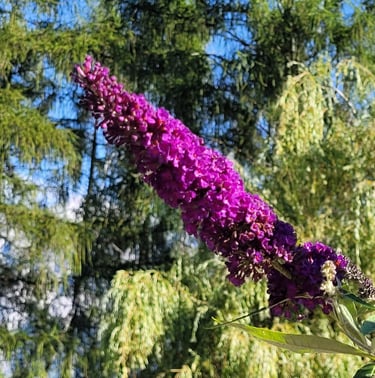

The Butterfly bush is a Dwarf shrub with flowers and is also considered a deer resistant shrub. The species and its cultivars are not able to survive the harsh winters of northern climates, being killed by temperatures below −15 to −20 °C (5 to −4 °F). It is also appreciated worldwide as ornamentals and for the value of their flowers as a nectar source for many species of butterfly.
Butterfly Bush


Japanese Maple
Japanese Maple leaves have a similar color to Nandina Shrubs, reaching 2-10 m (6-33 ft), thrive in partial shade and well-drained soil. Their unique foliage offers stunning fall color and provides habitat for birds. These small ornamental trees are perfect for creating a focal point in gardens.
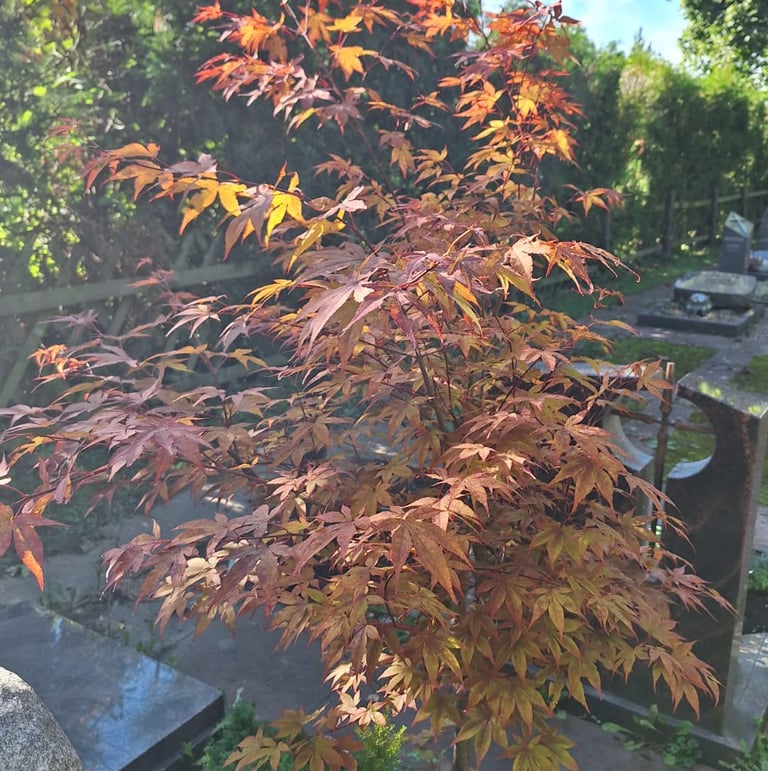





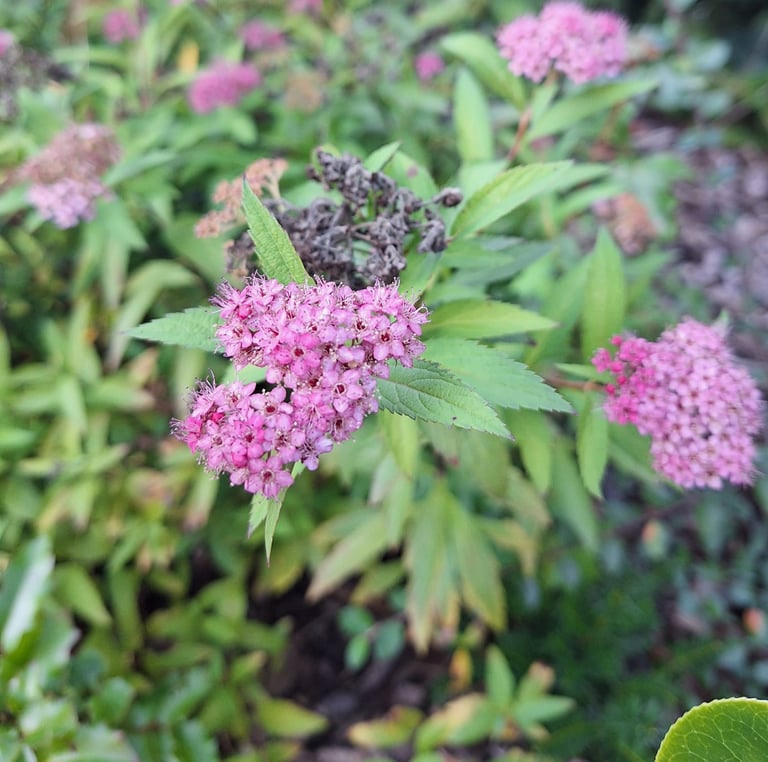

Spirea
Spirea reaches up to 1.5 m (5 ft) and thrives in full sun and well-drained soil. Its summer blooms and vibrant fall foliage make it a standout. This low-maintenance shrub is perfect for adding a burst of color to small landscapes.



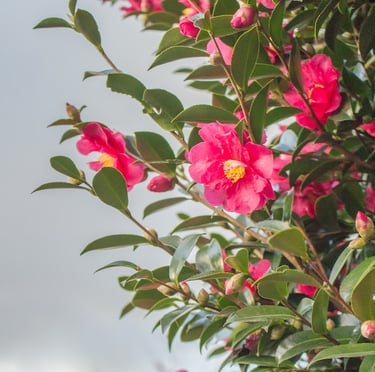

Camellia
Camellias, growing to 1.5-6 m (5-20 ft), love partial shade and well-drained, acidic soil. They are spring plants that bloom from spring to winter winter and provide beauty and nectar for pollinators during off-peak seasons and are also known for their use in tea production.




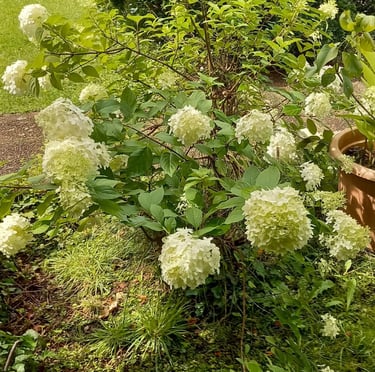

Viburnum
Viburnums fragrant flowers and berries support wildlife, including birds and pollinators. These shrubs are also known for their air-purifying qualities. They are growing to 1-5 m (3-16 ft) and thriving in full sun to partial shade and well-drained soil.




Kerria Japonica
This Yellow-flowering ornamental plant reaches about 1-2 m (3-6 ft) and prefers partial shade and moist, well-drained soil. Its unique, pom-pom-like yellow flowers fit well with green ornamental Bamboo and add a whimsical touch to gardens.






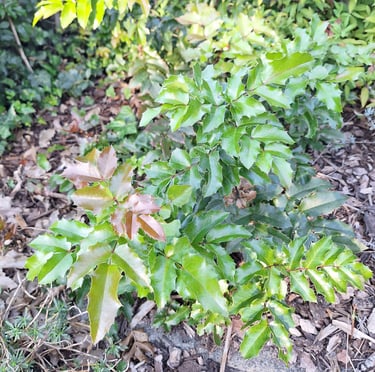

Holly
Holly bushes are one of the best evergreen shrubs, growing up to 2-15 m (6-50 ft), prefer full sun to partial shade and well-drained soil parallel to Nandina Shrubs. Their bright red berries in winter feed birds and their dense foliage offers shelter. Holly is a popular Christmas decoration plant and we saw that iit also works well as a container shrub.



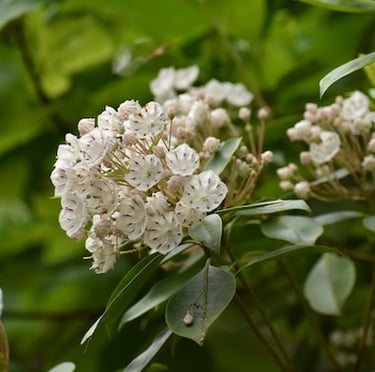

Mountain Laurel
This evergreen shrub, scientifically known as Kalmia latifolia reaches 1-3 m (3-10 ft) and prefers partial shade and acidic, well-drained soil. Their spring blooms are not only beautiful but also attract pollinators. They're ideal for woodland gardens or sometimes as ground cover plants and offer year-round interest with their evergreen foliage.


Sources
Nature and Sustainability uses only high-quality sources, including peer-reviewed studies, and other fact-dense and highly trusted sources to support the facts that we use in our articles. Please read our editorial policy to learn more about how we keep our content accurate, reliable, and trustworthy.
How shrubs benefit the environment: Shrubs, Environments, and Ecosystems | National Library of Medicine
Ecosystems (Detailed): Ecosystem (nationalgeographic.org)
Root systems and the environment: Roots – The Science of Plants (umn.edu)
Air pollution and shrubs: Air Pollutants | Air | CDC
Mountain Laurel: Kalmia latifolia | North Carolina Extension Gardener Plant Toolbox (ncsu.edu)
Kerria Japonica: Kerria japonica | North Carolina Extension Gardener Plant Toolbox (ncsu.edu)
Camellia: Camellia japonica | North Carolina Extension Gardener Plant Toolbox (ncsu.edu)
Butterfly bush: How to Grow and Care for Butterfly Bush (thespruce.com)
Share this article:




Article By:
Calin is in the garden industry for 5 years now and knows a lot about gardening and plants. He owns this website and responsible for most of the content.



